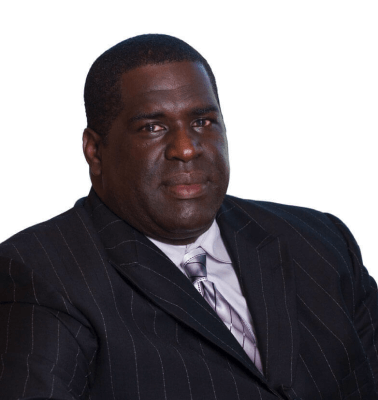Understanding DUI Charges and Legal Definitions
A DUI charge indicates that you’re facing allegations of driving while impaired by alcohol or with a blood alcohol level exceeding the legal threshold of 0.08%. Such charges can result in imprisonment, the suspension of your driver’s license, and substantial fines, all of which can have lasting impacts on your life.
Understanding the legal definitions in your case is key to building a strong defense. Your criminal defense lawyer will explain what the prosecution must prove. This creates chances to challenge their case during the trial.
Preparation Before the Trial
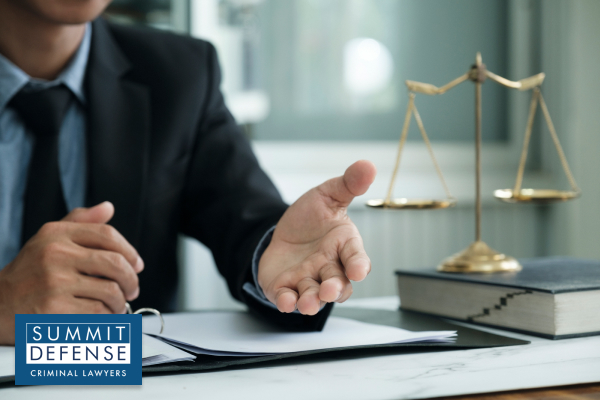 Good preparation is vital before testifying in a DUI trial. Working closely with your criminal defense attorney before your court appearance can make a big difference. This prep phase helps you gain confidence for questioning.
Good preparation is vital before testifying in a DUI trial. Working closely with your criminal defense attorney before your court appearance can make a big difference. This prep phase helps you gain confidence for questioning.
The prosecution team will spend lots of time preparing their case against you. You must be just as prepared. Let’s look at how to get ready for trial.
Understanding Your Rights During Testimony
As a defendant, you have important rights that protect you when testifying. The Fifth Amendment grants you the freedom to stay silent and protects you from being compelled to incriminate yourself.
If you choose to testify, your defense counsel will be there to object to unfair questions. Knowing when to answer and let your attorney step in. Taking a deep breath before answering gives your lawyer time to object to potentially harmful questions.
Reviewing Case Details and Evidence with Your Attorney
Go through all case details with your legal counsel before trial. This includes:
Your criminal defense attorney will help find problems in the evidence and prepare for questions about these details. Being familiar with your case prevents surprises from the prosecution’s questions about the arrest procedure or your driving pattern.
Anticipating the Prosecution’s Strategy
Knowing how prosecutors handle DUI cases helps you prepare for their tactics. They often try to establish when you drank alcohol and connect it to symptoms of intoxication seen during your arrest.
They might try to make you contradict earlier statements or use terms you don’t understand. Your defense attorney will practice questions with you to help you spot these tricks and respond well.
Common Trick Questions by Prosecution
During your DUI trial, the prosecutor will use questions designed to get damaging responses. Recognizing these trick questions is the first step in avoiding their traps. The prosecution wants you to make statements that support their version of events.
These questions seem simple but contain hidden traps. Let’s look at some common trick questions you might face.
Questions About Intoxication Symptoms
Prosecutors often ask about how you felt when arrested, like “You had trouble focusing that night, right?” or “Wasn’t your speech slurred when talking to the officer?”
These questions try to get you to admit to symptoms of intoxication. Instead, you can say, “I felt alert and focused,” or “I was speaking clearly but was nervous talking to police.” Your defense attorney will help you practice honest answers that don’t help the prosecution’s claims about your level of intoxication.
Inquiries Into Breath and Field Sobriety Tests
Expect questions about why you “failed” field sobriety tests or had a high breath alcohol level. The prosecutor might ask, “If you weren’t drunk, why couldn’t you walk straight?” or “How do you explain your high breath test results?”
Focus your answers on other explanations for test results, such as:
- Problems with testing equipment
- Improper testing procedures
- Physical conditions that affected your performance
Factors like lack of sleep, medical conditions like acid reflux, or even attention deficit disorder can affect these test results and explain your performance.
Probing Questions About Your Behavior During Arrest
The prosecution may ask about your behavior during arrest, such as “Why did you refuse the breath sample?” or “Why were your eyes red when the officer turned on his blue lights?”
Explain your thinking without admitting guilt. For example, “I wanted to talk to legal counsel before taking any tests” or “My eyes were tired from working all day.” Stick to your experience without accepting how the prosecutor describes the initial arrest.
Effective Defense Strategies
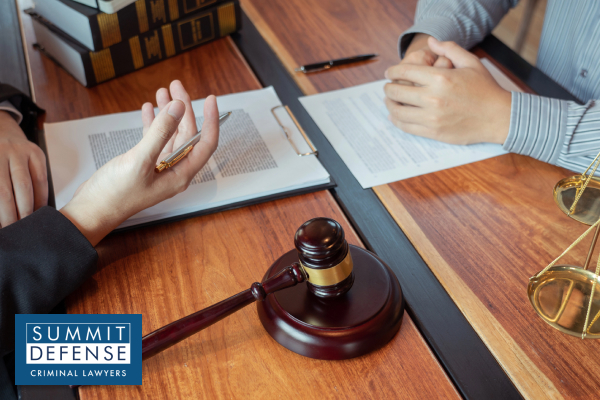 A good defense strategy is essential when facing prosecution trick questions. With the right approach, you can counter these tactics and tell your side of the story. Your criminal defense attorney will help create strategies for your specific case.
A good defense strategy is essential when facing prosecution trick questions. With the right approach, you can counter these tactics and tell your side of the story. Your criminal defense attorney will help create strategies for your specific case.
These strategies weaken the prosecution’s evidence while offering other explanations for your behavior. Here are some effective defense approaches.
Highlighting Inaccuracies in Field Sobriety Tests
Field sobriety tests, such as walking a straight line or the horizontal gaze nystagmus test, aren’t always reliable. Many factors can affect these tests, including:
- The weather and other extreme conditions
- Physical tasks that require divided attention
- Taking an extra step during the test
- Nervousness or stress
When questioned about these tests, you can point out that you had to perform under stressful conditions with bright lights. Your defense witness might also testify that the officer didn’t follow proper testing protocols.
Challenging the Validity of Breath Alcohol Tests
Breath alcohol tests can be flawed due to:
- Poor calibration
- Contamination from chemical substances like isopropyl alcohol
- Problems with the testing process itself
Your defense team might call an expert witness to testify about issues with the testing equipment. When asked about breath test results, you can say you followed all instructions from the breath technician. Your defense counsel may also question if the testing equipment was properly maintained.
Questioning Police Procedures and Testimonies
Police officers must follow specific steps during a DUI stop and arrest. Any mistakes in these procedures can be grounds for challenging the evidence against you. Your defense strategy may question whether the officer had a good reason for the initial stop.
During your testimony, you might note that the officer didn’t give clear instructions or make a misstatement of evidence in their report. Your criminal defense lawyer will help you find problems in police testimonies to highlight during your defense.
Responding to Questions Aimed at Incriminating Testimony
Some questions are designed to get you to say incriminating things. The prosecution may try to get you to make statements that help their case, even if those statements don’t accurately reflect what happened. Knowing how to respond is crucial.
Your answers should be truthful but careful to avoid self-incrimination. Here are some strategies for handling these types of questions.
Maintaining Composure Under Pressure
Staying calm during questioning is essential. The prosecutor may try to upset you by asking rapid-fire questions or making accusations. When this happens, take a moment to gather your thoughts before answering.
Keep good eye contact with both the prosecutor and the jury. Speak clearly and confidently. If you need the entire question repeated, it’s fine to ask. How you answer matters just as much as what you say.
Answering Questions Without Admitting Fault
You can give accurate answers without incriminating yourself. For example, if asked, “How many drinks did you have?” instead of giving a number that suggests intoxication, you might say, “I had a small amount over several hours with food.”
If you truly don’t remember certain details, it’s better to say “I don’t recall” than to guess and potentially contradict yourself later. Your criminal defense attorney will advise you on how to phrase truthful responses that don’t support claims about your blood alcohol content.
Utilizing Medical Impairment Defenses
Medical conditions can sometimes look like symptoms of intoxication or affect test results. For example:
- Acid reflux can impact breath test readings
- Balance issues can affect field sobriety test performance
- Some medical conditions can cause an odor of alcohol
If this applies to your case, be ready to explain how your medical condition might have affected the officer’s observations or test results. Your defense team may call a medical expert as a defense witness to support these alternative explanations.
Role of Expert Witnesses in Strengthening Your Defense
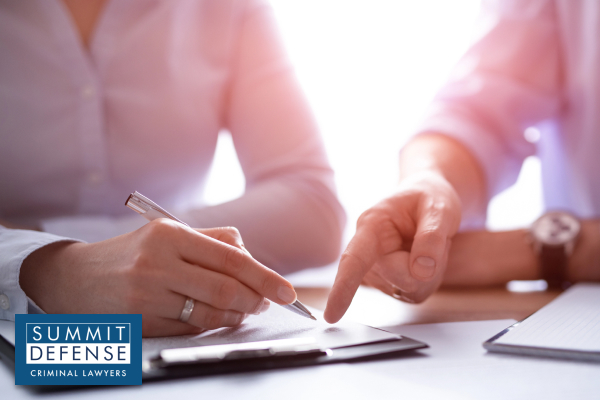 Expert witnesses are vital in DUI cases. They provide specialized knowledge that can challenge the prosecution’s evidence. These professionals offer scientific explanations that support your defense and create reasonable doubt for jurors.
Expert witnesses are vital in DUI cases. They provide specialized knowledge that can challenge the prosecution’s evidence. These professionals offer scientific explanations that support your defense and create reasonable doubt for jurors.
Your defense counsel will choose the right type of expert witness for your case. Let’s see how expert testimony helps your defense.
Leveraging Expert Testimony to Refute Claims
Expert witnesses can refute prosecution claims by providing scientific explanations. For example, a toxicology expert might explain factors that could lead to false positives in blood testing or how alcohol absorption rates differ among people.
When questioned about test results, you can reference your expert’s testimony by saying, “As the expert explained, my medical condition could have affected those results.” This strengthens your defense with scientific backing.
Impeaching Police Testimonies
Expert witnesses can also help challenge what police officers say by pointing out inconsistencies or improper procedures. An expert familiar with intoxication symptoms might testify that your behaviors could have been caused by factors other than alcohol.
You can reference these expert opinions during your testimony when answering questions about the officer’s observations. This helps weaken the credibility of evidence from the police officer who arrested you.
Concluding Your Testimony Effectively
How you end your testimony can leave a strong impression on the jury. A good conclusion reinforces your defense and plants seeds of doubt about the prosecution’s case. Your final statements should tie together the key parts of your defense strategy.
Working with your criminal defense lawyer, you’ll develop an approach that highlights weaknesses in the prosecution’s case while strengthening your own story. Here’s how to conclude effectively.
Summarizing Key Defense Points
As your testimony ends, take time to summarize the key points of your defense. This might include:
- Problems with police procedures
- Issues with testing methods
- Other explanations for observed behaviors
Without sounding rehearsed, reinforce that you were not over the legal limit and that the evidence doesn’t support the criminal charge against you. This summary helps jurors remember the strongest parts of your defense.
Emphasizing Reasonable Doubt
The prosecution must prove your guilt beyond a reasonable doubt. Your testimony should leave the jury questioning the reliability of the evidence against you. Emphasize areas where the evidence is incomplete or open to other interpretations.
Your closing statements should remind the jury that they must find you not guilty if they doubt your guilt. Creating these doubts throughout your testimony strengthens your case for acquittal when the jury deliberates after closing arguments.
Contact Our Bay Area DUI Defense Lawyer for a Free Case Consultation
 At Summit Defense, we know how stressful facing DUI charges can be. Our team of experienced criminal defense attorneys has successfully defended many clients against DUI charges throughout the Bay Area.
At Summit Defense, we know how stressful facing DUI charges can be. Our team of experienced criminal defense attorneys has successfully defended many clients against DUI charges throughout the Bay Area.
If you’re facing a DUI charge, don’t wait to get legal help. Contact us today for a free consultation to discuss your case. We can help you fight for dismissal of charges or reduced penalties. With our knowledge of DUI defense strategies and experience challenging evidence from field sobriety tests to blood alcohol concentration measurements, we can help build the strong defense you need to protect your future.
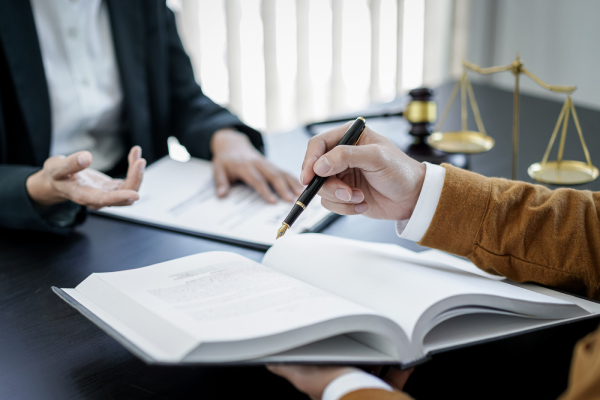 At Summit Defense, our criminal defense attorneys help people facing DUI charges throughout the Bay Area. Testifying at your DUI trial can be stressful.
At Summit Defense, our criminal defense attorneys help people facing DUI charges throughout the Bay Area. Testifying at your DUI trial can be stressful.

 Good preparation is vital before testifying in a DUI trial. Working closely with your criminal defense attorney before your court appearance can make a big difference. This prep phase helps you gain confidence for questioning.
Good preparation is vital before testifying in a DUI trial. Working closely with your criminal defense attorney before your court appearance can make a big difference. This prep phase helps you gain confidence for questioning. A good defense strategy is essential when facing prosecution trick questions. With the right approach, you can counter these tactics and tell your side of the story. Your criminal defense attorney will help create strategies for your specific case.
A good defense strategy is essential when facing prosecution trick questions. With the right approach, you can counter these tactics and tell your side of the story. Your criminal defense attorney will help create strategies for your specific case. Expert witnesses are vital in DUI cases. They provide specialized knowledge that can challenge the prosecution’s evidence. These professionals offer scientific explanations that support your defense and create reasonable doubt for jurors.
Expert witnesses are vital in DUI cases. They provide specialized knowledge that can challenge the prosecution’s evidence. These professionals offer scientific explanations that support your defense and create reasonable doubt for jurors. At Summit Defense, we know how stressful facing DUI charges can be. Our team of experienced criminal defense attorneys has
At Summit Defense, we know how stressful facing DUI charges can be. Our team of experienced criminal defense attorneys has 



